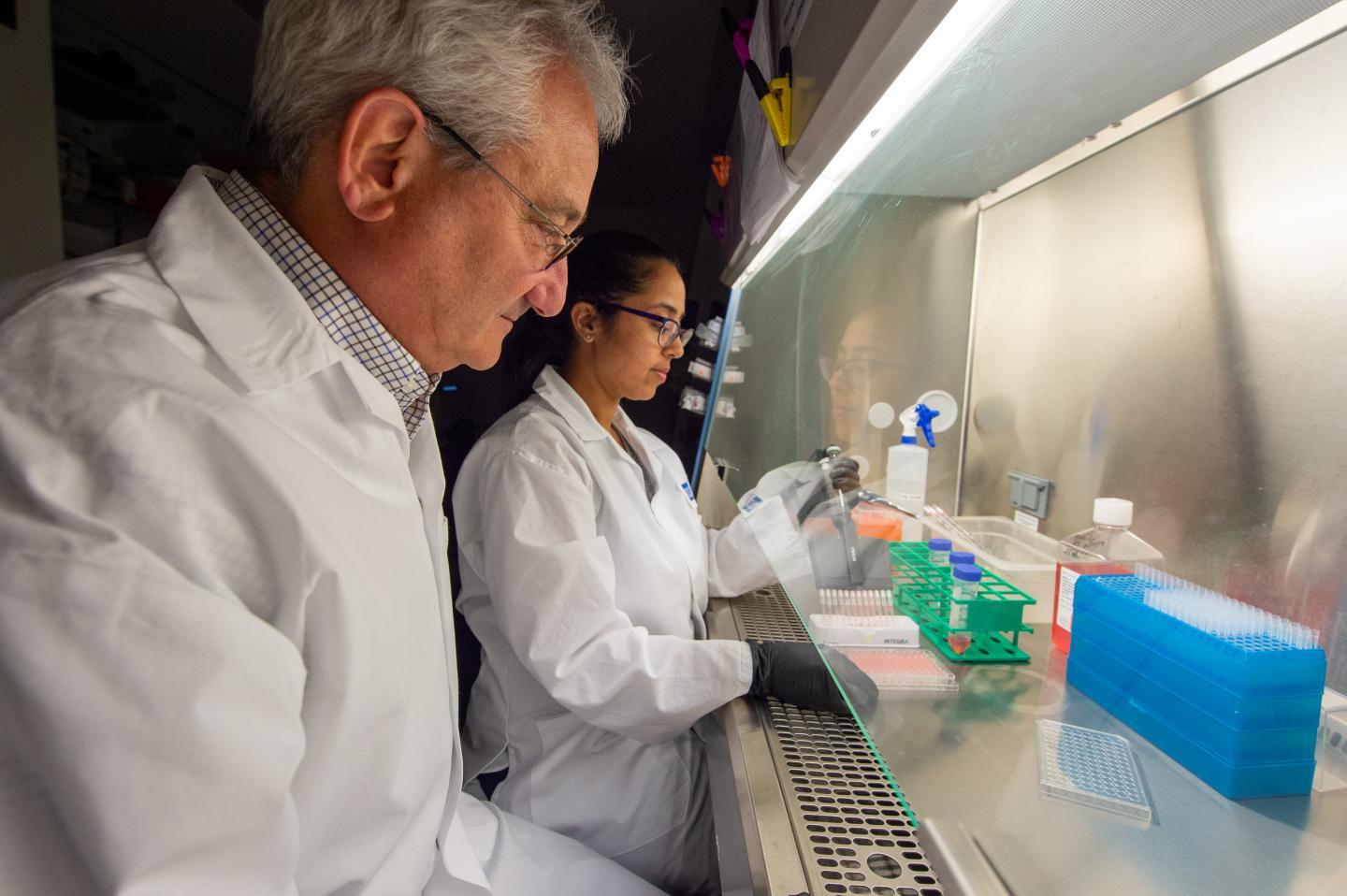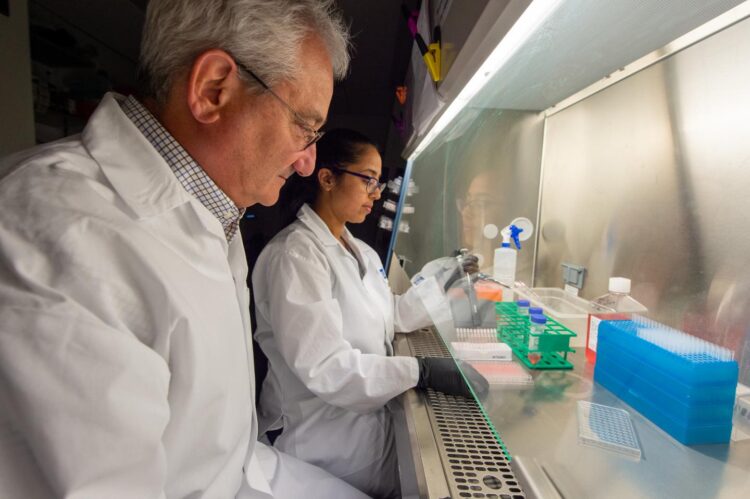Dose-sparing regimens and intradermal delivery have important implication for rapid clinical development of effective, well-tolerated and easy-to-distribute vaccines against MERS and other emerging coronaviruses.

Credit: The Wistar Institute
PHILADELPHIA — (April 22, 2021) — A synthetic DNA vaccine candidate for Middle East respiratory syndrome coronavirus (MERS-CoV) developed at The Wistar Institute induced potent immune responses and afforded protective efficacy in non-human primate (NHP) models when given intradermally in abbreviated, low-dose immunization regimen. A similar vaccine candidate was previously shown to be safe and tolerable with a three-dose intramuscular injection regimen in a recently completed human phase 1 study and is currently in expanded studies of phase 1/2a trial.
New results were published today in JCI Insight.
“While several vaccine products are being advanced against MERS and other coronaviruses, low-dose delivery and shortened regimes are crucial to rapidly induce protective immunity, particularly during emerging outbreaks, as the current SARS-CoV-2 pandemic has emphasized,” said David B. Weiner, Ph.D., Wistar executive vice president, director of the Vaccine & Immunotherapy Center (VIC) and W.W. Smith Charitable Trust Professor in Cancer Research, who led the study.
Researchers evaluated the immunogenicity and protective efficacy of their MERS synthetic vaccine when delivered intradermally using a shortened two-dose immunization schedule compared with intramuscular delivery of higher doses in NHP.
“Given that human efficacy trials for MERS vaccines may be challenging due to the low number of yearly cases, animal models such as our NHP model are valuable as a bridge with human data coming from early-phase clinical trials,” said Weiner.
In this study, Weiner and team report robust antibody neutralizing antibodies and cellular immune responses in all conditions tested. A rigorous virus challenge experiment showed that all vaccination groups were protected against MERS-CoV compared to unvaccinated control animals. However, the low-dose regimen with intradermal delivery was more impactful in controlling disease and symptoms than the higher dose delivered intramuscularly in NHP models.
“To our knowledge, this is the first demonstration of protection with an intradermally delivered coronavirus vaccine,” said Ami Patel, Ph.D., Caspar Wistar Fellow at the Vaccine & Immunotherapy Center and one of the lead authors of the paper. “Intradermal delivery of synthetic DNA vaccines has significant advantages for rapid clinical development. It can be dose sparing and has higher tolerability in people compared with intramuscular injection. The positive results of this study are important not only for the advancement of this MERS vaccine but also for development of other vaccines.”
“Our team is also advancing a COVID-19 vaccine through clinical trials, and we were able to do so in a very short time thanks to our previous experience developing the MERS vaccine,” added Weiner.
Importantly, no evidence of adverse effects on the lungs was observed in any of the dosing groups compared to unimmunized control animals. Through the assessment of a large panel of blood cytokines, researchers showed significant decrease in all mediators of inflammation, which further suggests the vaccine prevents the destructive inflammation induced by coronaviruses.
“In the past twenty years, three new coronaviruses have emerged and caused human outbreaks. The current SARS-CoV-2 pandemic has further emphasized the importance of rapid infection control for coronaviruses and other emerging infectious diseases,” said Emma L. Reuschel, Ph.D., a staff scientist in the Weiner lab and co-first author on the study. “Vaccine candidates that are simple to deliver, well tolerated, and can be readily deployed in resource-limited settings will be important to achieve control of infection.”
###
Co-authors: Ziyang Xu, Faraz I. Zaidi, Kevin Y. Kim, Regina Stoltz, and Kar Muthumani from The Wistar Institute; Dana P. Scott, Friederike Feldmann, Tina Thomas, Rebecca Rosenke, Dan Long, Jamie Lovaglio, Patrick W. Hanley, and Greg Saturday from National Institutes of Allergy and Infectious Diseases, National Institutes of Health, Hamilton, MT; Janess Mendoza, Stephanie Ramos, Laurent Humeau, and Kate E. Broderick from INOVIO Pharmaceuticals, Inc.
Work supported by: Funding from the Intramural Research Program, National Institutes of Allergy and Infectious Diseases, and the Coalition for Epidemic Preparedness Innovations (CEPI).
Publication information: Intradermal delivery of a synthetic DNA vaccine protects macaques from Middle East respiratory syndrome coronavirus, JCI Insight (2021). Online publication.
The Wistar Institute is an international leader in biomedical research with special expertise in cancer research and vaccine development. Founded in 1892 as the first independent nonprofit biomedical research institute in the United States, Wistar has held the prestigious Cancer Center designation from the National Cancer Institute since 1972. The Institute works actively to ensure that research advances move from the laboratory to the clinic as quickly as possible. wistar.org.
Media Contact
Darien Sutton
[email protected]
Original Source
https:/
Related Journal Article
http://dx.





